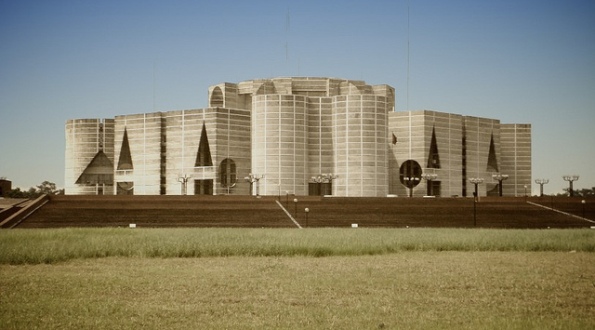BECOME A MEMBER
>JOIN
Bangladesh: Code of Conduct for MPs Sits Idle

The proposed law, that charts out seven guidelines for MPs in discharging their duties, went to the parliamentary standing committee on private members’ bills and resolutions on January 14, 2010. However, for unknown reasons, the bill has not yet been placed in parliament for adoption
The ruling Awami League [AL] is yet to decide on formation of an all-party ethics committee, which would discuss and censure misuse of authority by legislators and prevent them from getting involved in conflict of interest scenarios, as proposed by a ruling party MP.
As a private member, AL MP Saber Hossain Chowdhury on January 14, 2010 tabled “The Code of Conduct of the MPs Bill-2010” containing a provision for the ethics committee. The proposed law went to the parliamentary standing committee on private members’ bills and resolutions the same day for further scrutiny.
It has been almost a year since the watchdog recommended the House to pass the bill charting out seven guidelines for MPs in discharging their duties.
However, for unknown reasons, the bill has not yet been placed in parliament for adoption.
“We have already placed our report suggesting its passage, now it is up to the treasury bench and the speaker,” Committee Chairman Abdul Matin Khasru told the Dhaka Tribune yesterday.
Khasru, a former law minister, said he favoured the bill, which he thought would protect the image of the lawmakers.
[...] According to parliamentary procedure, any MP, irrespective of their party, other than the ministers, can take initiatives on their own to prepare laws on any matter and place them in the House for passage. Such legislative proposals are called private members’ bills. The MPs get their chance to table the bills on Thursday, which is considered private members’ day, when the House is in session. The draft law then goes to the standing committee on private members’ bills and resolutions for detailed scrutiny. The bill is placed for adoption in the House only after the watchdog recommends it. The bills are passed only if the ruling party agrees with the contents.
Parliament secretariat figures show only six private members’ laws have been passed in Bangladesh’s history. The current ninth parliament has passed only one bill, Saber Hossain Chowdhury’s Lepers (repeal) Act.
Saber told the Dhaka Tribune: “I have prepared the bill to protect the honour and dignity of the lawmakers. I think the MPs will agree on this issue.”
The ruling party lawmaker said he placed the bill with the spirit of self-regulation of the MPs who make laws for the regulation of others. [...]
The proposed law contains seven guidelines for MPs.
First, MPs must disclose in which sectors they have conflicts of interest. Second, they must maintain transparency in their activities, keeping people’s interests in mind.
Thirdly, they must be accountable to the people, and also remain ready for any review of their decisions. The fourth suggestion restricts them from making recommendations which would result in economic and other benefits for their family members and relatives.
The fifth proposal is to stop MPs from getting financially involved with organisations that can influence their legislative duties. The sixth is that MPs must not make recommendations for recruitment, award giving and contracts and must prioritise merit. The last suggestion says that MPs must promote the ethical standard set in the proposed law.
Explaining the conflicts of interest, Saber Chowdhury said: “If I am a shipping businessman, I must declare in the House that I have interest in the matter, but I am forced to raise the matter for the greater sake of the people. Thus, transparency of the lawmakers comes.” [...]
Conflict of interests at the watchdogs
The current parliament has many MPs who are members of the parliamentary standing committees on ministries in which they have interests, in violation of the Rules of Procedure.
For instance, shipping trader Noor-E-Alam Chowdhury, also a nephew of Prime Minister Sheikh Hasina, is the chairman of the parliamentary standing committee on shipping ministry.
Awami League businessman MP Abul Kashem, whose brother is a leading businessman in Chittagong, is the chairman of the parliamentary standing committee on commerce ministry. Another businessman, Sk Afil Uddin, is also a member.
AHM Mustafa Kamal, who has interests in the capital market and other financial institutions, is the chairman of the parliamentary standing committee on finance ministry. Tajul Islam, a director of Jamuna Bank, is also a member of the same committee. He has been heading a parliamentary sub-committee on the performance of the state-owned banks.
PN Member Saber Hossain Chowdhury was first elected as Member of Bangladesh Parliament in 1996 and was elected for a second five year term in December 2008. He is the first MP in Bangladesh to have initiated legislation on prohibition of custodial torture and deaths, code of conduct for MPs, domestic violence, rights of slum dwellers and repeal of the Leper’s Act which promotes segregation.
Originally published on DhakaTribune.com.
Photo by m.n.azam.

